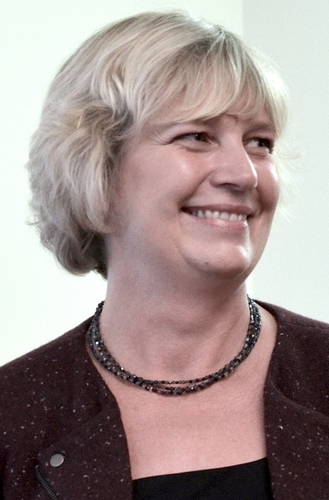TOWNSHEND — A big part of caring for elders is maintaining their physical health, explained Valley Cares Executive Director Susanne Shapiro.
Still, a person's health is more than physical. It also involves emotional and social aspects.
“There is a real need for a better balance of providing for their physical and emotional needs and also providing for their safety,” she said. “It's a conflict.
At West River Valley Senior Housing, Valley Cares assisted living facility serves 35 residents, who get help with the needs of their daily lives. Across the parking lot, residents in 25 one- and two-bedroom apartments can get meals, housekeeping, and various support services.
To protect the elders under her care, Shapiro and the staff at Valley Cares have complied with the state's lockdown orders.
No one but staff may enter the building. It means the facility has succeeded in keeping its residents COVID-19 free. But it also means some elders haven't seen their families or other loved ones in months.
That changed a bit over the weekend. As of June 19, the state is allowing limited outdoor visits at long-term care facilities.
It's been a difficult balancing act, she said.
“We're seeing physical decline, we're seeing emotional and psycho-social decline,” Shapiro said. “People miss their families, they miss social interactions, they miss eating together in the dining room, it's having an overall impact.”
“This week, we've sent three people to rehab because they've declined so much we're on the cusp of not being able to provide for them anymore,” she added. “We're not allowed agency staff. Physical therapists can't come in, occupational therapists - anybody who isn't on staff.”
Still, Valley Cares has not had any COVID-19 cases so far.
“It's our biggest fear, and it's the biggest fear of our staff that they bring it with them, because we're the biggest risk factor,” she said. “We go home every day. We have to buy food every day.”
The residents have everything provided for them, and if they go out, they have to quarantine for two full weeks, Shapiro said.
As a result, residents haven't been able to go to any outside appointments - even medical appointments - unless it's urgent.
Shapiro hopes she can reopen Valley Cares to family soon. Yet, she also recognizes that as more people socialize, it could mean a resurgence of COVID-19.
If the facility reopens and the threat escalates, Valley Cares would return to lockdown mode if necessary.
“But there will come a point when people will need their tests, their X-rays, their doctors appointments,” she said. “Maintaining health for people in their 80s and 90s is all we do, and so right now we can't do enough maintenance care.”
In some cases, the facility has been able to provide residents with videoconference or telephone appointments, and it has brought in physicians dressed in full protective gear.
“It's a complicated public health balance act,” she said.
To help residents maintain their emotional health, Shapiro said staff try to be present and available.
Staff have also used videoconferencing software to facilitate visits between residents and family members. For those who have problems seeing a computer screen, the staff wheel a large television set connected to a computer into their room.
Staff try to make daily activities fun and decorate for the holidays, she continued. Every other Friday, staff deliver wine and cheese to residents' rooms.
“Yeah, it's really, really hard and the human connection - what else is there? - and right now they don't have enough of it,” she said.
“And providing quality of life is the foundation of everything we do here,” Shapiro continued. “It's our goal, and we can't meet that goal right now - not to the extent that we want to and we used to.”
Shapiro doubts much will change for elder-care facilities like Valley Cares until the country can achieve better control of the virus and a working vaccine emerges.
“As depressing as it sounds, that is the reality, because as it stands, if we have one case, we've seen what happens -there's no stopping it,” she said.
Shapiro said the facility has instituted new hygiene routines such as facility-wide disinfection three times a day on all high-touch surfaces. Staff wear masks. Valley Cares recommends masks to residents, but not all can tolerate them.
“So, it's a different time for sure being a health care professional,” she said.
Valley Cares has open rooms at the moment because Shapiro stopped taking new applications during the lockdown. The facility has resumed the process now that the Vermont Department of Health has developed a protocol for new admissions, she said.
“For me, the balance of saying no to family members and protecting the residents is a daily thing - and probably the toughest thing for me right now,” she said.
